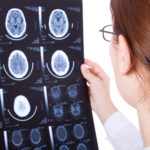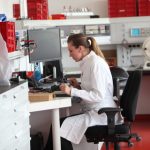
New discovery could advance the understanding of neurological diseases
The discovery of a new mechanism that controls the way nerve cells in the brain communicate with each other to regulate learning and long-term memory could have major benefits to understanding how the brain works and what goes wrong in neurodegenerative disorders such as epilepsy and dementia (University of Bristol, 2017). The breakthrough, published in … Continue reading New discovery could advance the understanding of neurological diseases

University of Bristol part of European initiative to study diabetic kidney disease
University of Bristol researchers are part of a major pan-European €28.9m initiative that aims to improve the prevention and management of diabetic kidney disease, the leading cause of kidney failure in the world (University of Bristol, 2017). BEAt-DKD (Biomarker Enterprise to Attack Diabetic Kidney Disease) is a unique five year public private partnership funded by … Continue reading University of Bristol part of European initiative to study diabetic kidney disease

Bacterium lassoes its way from the mouth to the heart to cause cancer
The human mouth can harbour more than seven hundred different species of bacteria (University of Bristol, 2017). Under normal circumstances these microbes co-exist with us as part of our resident oral microbiota. But when bacteria spread to other tissues via the blood stream, the results can be catastrophic. Researchers from the University of Bristol have … Continue reading Bacterium lassoes its way from the mouth to the heart to cause cancer

Researchers develop software which measures working memory in a more accessible way
A new app developed by the University of Bristol, which provides an accessible measure of working memory, the ability to hold, manipulate and process information for short periods has been showcased on Channel 4 (University of Bristol, 2017). The n-back app, created by researchers at Bristol University’s School of Experimental Psychology and the MRC’s Integrative … Continue reading Researchers develop software which measures working memory in a more accessible way

A brain wide chemical signal that enhances memory
Researchers at the University of Bristol and University of Maynooth, in collaboration with Eli Lilly, have looked at how heightened attention improves mental capacity (University of Bristol, 2017). Their research, published in Cell Reports, reveals a chemical signal released across the brain in response to attention demanding or arousing situations. The new discoveries indicate how … Continue reading A brain wide chemical signal that enhances memory

Eating disorders are affecting more UK women in their 40s and 50s than expected, finds new sudy
In a UK study of 5,320 women, 3% were found to have an active eating disorder in mid-life, a figure higher than expected as eating disorders are primarily associated with adolescence or early adulthood (University of Bristol, 2017). The research, using data from the University of Bristol’s Avon Longitudinal Study of Parents and Children cohort, … Continue reading Eating disorders are affecting more UK women in their 40s and 50s than expected, finds new sudy

Statins may reduce the risk of blood clots in the vein
A study published by Dr Setor Kunutsor of the Musculoskeletal Research Unit in the University of Bristol’s School of Clinical Sciences, with colleagues from the University of Leicester, has confirmed that statins could play an important role in reducing the risk of venous thromboembolism (University of Bristol, 2017). Statins are groups of medications that reduce … Continue reading Statins may reduce the risk of blood clots in the vein

New research on how bacteria resists last-resort antibiotic
A team of University of Bristol-led researchers has provided the first clues to understand how the mcr-1 gene protects bacteria from colistin, a last resort antibiotic used to treat life-threatening bacterial infections that do not respond to other treatment options (University of Bristol, 2017). Last year, members of the team, led by Dr Jim Spencer … Continue reading New research on how bacteria resists last-resort antibiotic

Further evidence found for causal links between cannabis and schizophrenia
A study by the University of Bristol’s School of Experimental Psychology has found people with a greater risk of developing schizophrenia are more likely to try cannabis (University of Bristol, 2016). Earlier this year scientists warned about the increased risk of psychosis for vulnerable people who use cannabis. Their warnings followed evidence suggesting an increased … Continue reading Further evidence found for causal links between cannabis and schizophrenia

Scientists trial a living bandage for knee injuries
A living bandage made from stem cells, which could revolutionise the treatment and prognosis of meniscal tears, a common sporting knee injury, has been trialled in humans for the first time by scientists at the Universities of Bristol and Liverpool (University of Bristol, 2016). Meniscal tears are suffered by over one million people a year … Continue reading Scientists trial a living bandage for knee injuries








